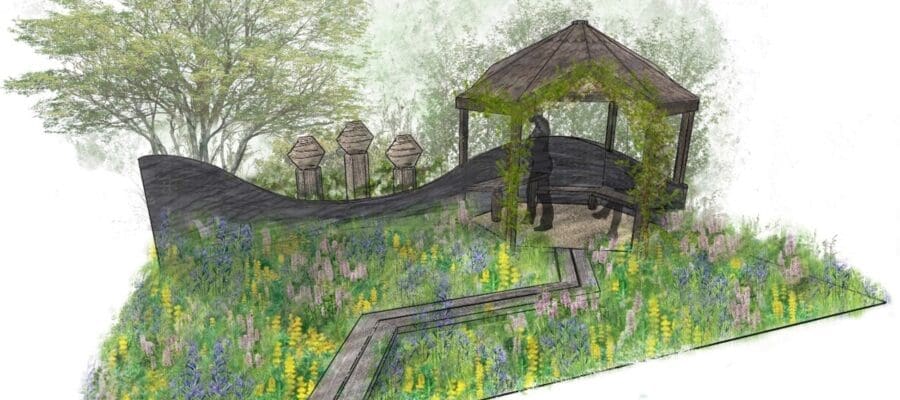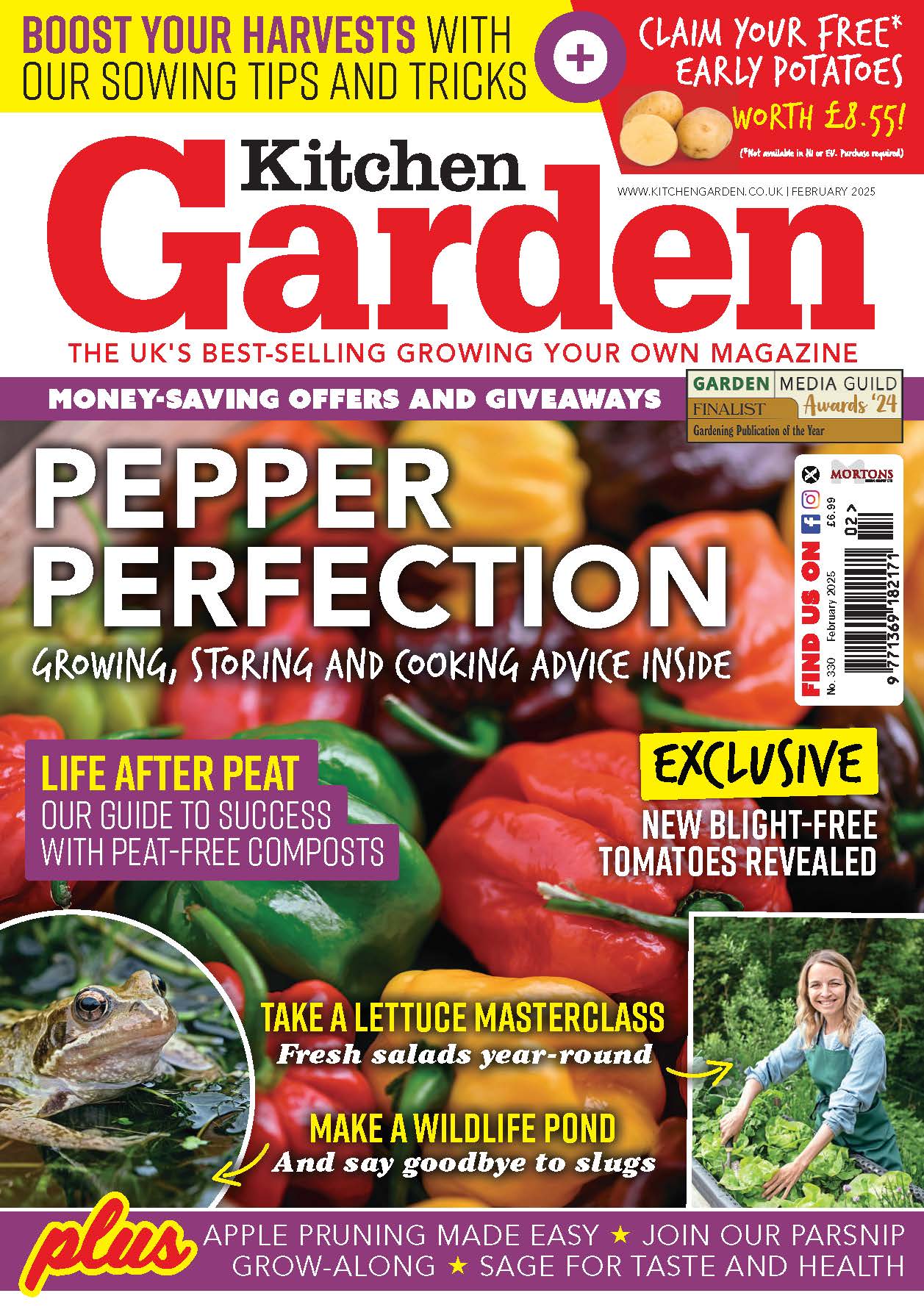The Bowel Research UK’s Microbiome Garden explores the fascinating link between a healthy landscape, a healthy gut and a healthy mind
The Bowel Research UK Microbiome Garden designed by Sid Hill and Chris Hull, explores the fascinating link between a healthy landscape, a healthy gut and a healthy mind, featuring a pioneering edible meadow, which aims to inspire people to rewild their diets, gardens and their relationship with the land.
The garden, which is in the ‘All About Plants’ category, is sponsored by Project Giving Back, the unique grant-giving charity that funds gardens for good causes at the RHS Chelsea Flower Show.
Talented young designers and RHS Chelsea debutants Sid Hill and Chris Hull have drawn inspiration for the garden design from medical and botanical research, focusing on the connection between the ecological health of a landscape and the health of our own gut flora. Informed by ancient cultures that tended and harvested the local landscape, Sid and Chris have designed a beautiful and diverse garden that harnesses edibles to improve both physical and mental health, using the gut microbiome as a catalyst.
The planting scheme takes inspiration from wild meadows, with a mix of ornamental grasses and edible perennials, offering a harvest for both people and wildlife. This pioneering ‘edible meadow’ combines a selection of feature plants including Bistort, Camassia and Lupin luteus, to create a rich tapestry of yellows, blues and pinks. This trio of beautiful plants are commonly grown in gardens across the UK, but few people know that they are great food crops too and they could offer a myriad of gut health and microbiome benefits.
The Bowel Research UK Microbiome Garden also features a serpentine timber wall which meanders through the rear of the garden and coils around a hexagonal locally sourced and milled timber shelter ‘The Hive’, which provides a space where people can gather to prepare food or take refuge from the elements. A wooden boardwalk leads through the meadow and traditional log hives emerge from the woodland-edge, providing a habitat for the many pollinators attracted to the rich floral display of the meadow.
Sid Hill, who has 15 years of experience of managing a landscape business and holds a 1st Class Honours degree in Ethnobotany & Landscape Design from the Eden Project, said: “Current science indicates that cultivating plants in ecologically rich environments fosters diverse microbial communities. Including these plants in our diet facilitates the transfer of beneficial microbes to our digestive system and human microbiome, promoting a healthy bowel and overall physical well-being.”
Chris Hull, who has over 16 years’ experience working in horticulture and garden design and who is also a regular presenter on the hit BBC TV show Garden Rescue. said: “Studies show that mental health issues such as anxiety and depression could be prevented and treated by creating a healthy balance of gut flora. It’s no secret that just being in green space can improve your mental well-being, but what’s better than using beautiful, ecologically rich plants which have pro and prebiotic benefits too.”
Lynn Dunne, Chief Executive Officer of Bowel Research UK, said:“We are excited to have our first RHS Chelsea garden this year, thanks to the generosity of Project Giving Back.
Our garden has a direct link to the research we fund into the gut microbiome, including a recent study by the research team at Imperial College that opens up the very exciting prospect of being able to offer precision medicine for bowel cancer patients around their individual gut microbiota. Moreover, there is so much more to discover about the effects of the microbiome on bowel disease outcomes which is why we are keen to support more research projects in this field.”
Following RHS Chelsea Flower Show, the garden will be relocated to the Apricot Centre in Totnes, Devon, which runs a sustainable farm helping children and families understand the fundamental link between the wellbeing of the soil, food and habitat, and the mental and physical health of the people who work in and around its farm.





